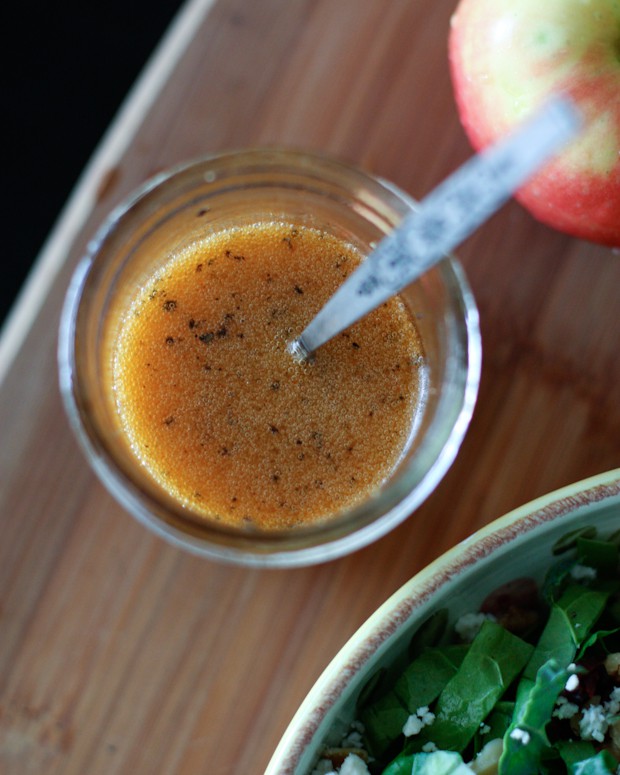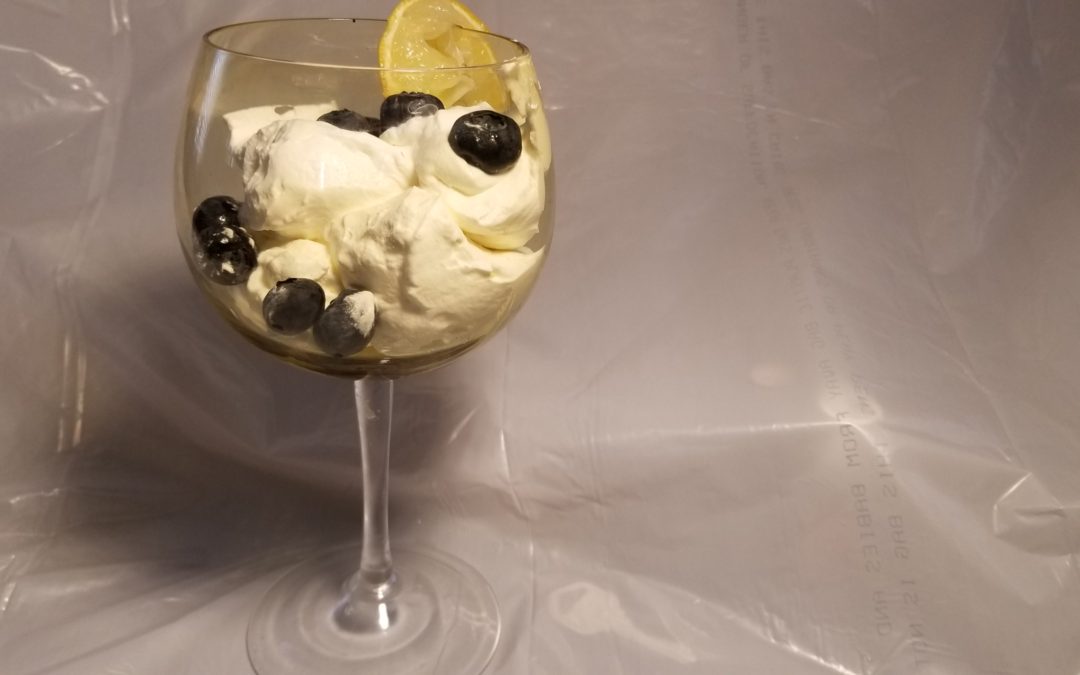Categories
Friday, November 30, 2018
Wednesday, November 28, 2018
To Construct, Not Criticize
She was expressing frustration how her son became insulted when she corrected him.
"He should want constructive criticism!"
"Why should he?" I said, laughing. "No one wants criticism! Do you?"

I was reminded of this while reading Judith Newman's review for marriage self-help books. There's a line from her favorite, written by a divorced divorce attorney, James Sexton.
He points out, for example, that what we all like to think of as constructive criticism of our mate is actually just criticism. He’s a big believer in training people through redirection and praise for even tiny changes, kind of like throwing bushels of “Whoosa Good Boy!” at your dog. And this guy is nothing if not a realist. Holding sex back as punishment is counterproductive, but suddenly becoming way more affectionate and enthusiastic when your mate does something right: That’s the way to go.
It's a very careful line. If criticism—from any source, in any relationship—isn't carefully thought out and carefully relayed, it is simply hurtful and degrading. It has been my mantra for some time now that "Do you want to be right, or do you want to be heard?"
There's a way to relay information that it can remain palatable to the receiver. But the message cannot be accepted at once. We have to allow others to save face, and save some battles for another day.
Monday, November 26, 2018
A Rose By Any Other Name
I was one of three girls in my high school class that had a legal name that didn't match my Hebrew one. I suppose it's unsurprising that those girls also had European backgrounds.
Supposedly, my legal name is the same legal name my Hebrew namesake, my great-grandmother, had back in Czechoslovakia, so I have some heritage there too.
For those who have read Herman Wouk's EXCELLENT Inside, Outside knows that the dual-named Jew is an ancient tradition.
So I found it entertaining to read this article how Dear Abby ruffled feathers by advising Indian parents not to give their newborn a "complicated" name that'll make their lives difficult.
For some readers, Ms. Phillips’s advice was simply practical. “She’s right. Get over it,” Ike J. Awgu, a lawyer from Ottawa, wrote on Twitter.
Mr. Awgu, whose father is from the former Biafra and whose mother is from Antigua, said that while his given first name was Ikechukwu, certainly not the easiest name to pronounce, his middle name is Jonathan. He goes by “Ike,” he said, because it is easier for Canadians to understand. Yet he snickered at the suggestion that he was in any way abandoning his culture by using a simplified version of his real name.
The reality, Mr. Awgu, 34, said, is that long, foreign-sounding names do not end up sticking. “The practical effect of that is nobody calls them that,” he said. “So they end up with some truncated name that is Anglicized any way.”
Although, when I asked a classmate then why she didn't have a legal name, she scoffed. "Schools are filled with people with ethnic names. Mine is going to stand out?"
True. My college was a veritable United Nations. It was hysterical watching the professors turn blue pronouncing all the quirky names. I have Chinese co-workers, and some felt a need to Anglicize their names while others do not. It makes no difference. In Europe one hundred years ago, there was no diversity.
Most of my nieces and nephews have legal names, usually when the Hebrew matched up to an easily pronounceable English (like "Simon" for "Shimon"). But if their names did not, then the Hebrew went on the birth certificate.
Like Mr. Awgu said, though, going by a Hebrew name has nothing to do with Jewish pride or lack thereof. In my case, it feels a bit like mesora. I'm probably going to continue the practice. I actually find it a reminder that while we may interact with the outside world, we aren't of it.
Friday, November 23, 2018
Wednesday, November 21, 2018
Fave Recipes V
I religiously read the New York Times Food section every week, but for the most part I'm not keen on their recipes. Too complicated. Too ethnic. Too treif.
But every once in a while, I hit upon something with potential. Although harissa is probably the furthest thing from the comforts of my Hungarian seasoning, I was intrigued.
I bought harissa online, and based on the online comments altered the recipe a bit.
- It called for 3 tablespoons; I used 1 1/2.
- It called for skin on; all my chicken goes naked.
- It called for shallots; eh, I used leek.
- It called for chicken stock; I didn't bother. (The following week I made it again at Han's request, but since I had leftover soup I used it. It made the sauce too thin.)
- It called for cilantro; I hate cilantro. Nuh-uh.
- One commenter mentioned a splash of white wine; I had an open bottle of Chateauneuf, why not?
- It called for a very short cooking time; I give all my chicken thighs/legs a solid 90 minutes of simmering.
My audience loved it. Like I wrote, when asked, Han requested it again. I forgot to take a picture. Here's the one that goes with the recipe:

I linked this one a few centuries ago, and it is worth a reminder. This salad dressing is perfection. It's the only one I use, really, besides the homemade tossing of haphazard ingredients (olive oil, vinegar, garlic powder, black pepper).
I bought a bag of "Power Greens" from Costco (kale, collard greens, and spinach), chopped up a cucumber and an orange pepper, then drizzled this on top.
Han requested a big bottle of it to use at work. Thank you, Rena!
I linked this recipe eeeeeeoooooons ago, and it's still a winner. I'm obsessed with lemon. I think it's the perfect palate-cleanser following a heavy Shabbos meal.
I don't use a microwave; I make the yolk batter on a teeny-tiny flame on the stove while constantly stirring. Nor do I bother with the whites over boiling water; eggs tend to be pasteurized, and after eating raw cake batter my whole life I have yet to be felled by glorious eggs.
I made this when hosting a guest for Friday night. I topped the mousse with some blueberries. The guest flashed me a thumb's up in appreciation.
I do think that now I have a palate less reliant on sweet, I should try cutting back on the sugar and see what happens.

I linked this one a few centuries ago, and it is worth a reminder. This salad dressing is perfection. It's the only one I use, really, besides the homemade tossing of haphazard ingredients (olive oil, vinegar, garlic powder, black pepper).
 |
| Via Aggies Kitchen |
Han requested a big bottle of it to use at work. Thank you, Rena!
I linked this recipe eeeeeeoooooons ago, and it's still a winner. I'm obsessed with lemon. I think it's the perfect palate-cleanser following a heavy Shabbos meal.
I don't use a microwave; I make the yolk batter on a teeny-tiny flame on the stove while constantly stirring. Nor do I bother with the whites over boiling water; eggs tend to be pasteurized, and after eating raw cake batter my whole life I have yet to be felled by glorious eggs.
 |
| Via Confidently Keto. I did not serve mine with lemon slices on the glass. |
I do think that now I have a palate less reliant on sweet, I should try cutting back on the sugar and see what happens.
Monday, November 19, 2018
Shidduch Lit VI
- The Way Men Act by Elinor Lipman

Lipman's prose is swift and snappy; she does not condescend to her audience, a trait I find appealing.
Our narrator, Melinda, is 30, and feels her singleness keenly. She has returned to her roots, a picturesque college town, after a failed foray into the greater world, working as a florist for her cousin's shop.
Our narrator, Melinda, is 30, and feels her singleness keenly. She has returned to her roots, a picturesque college town, after a failed foray into the greater world, working as a florist for her cousin's shop.
What makes this book Shidduch Lit for me is Melinda's dating perspective. She is determined to pair up, and undergoes disappointment followed by disappointment. Here is one scene following a botched date with someone she shouldn't have gone out with in the first place:
"You're hurt," said [he]."I'm used to it," I said.
Ouch.
But she navigates the minefield with self-confidence. She may get knocked down, but she gets back up again, without self-pity or wound-licking.
This book, obviously, does not have the old-world poshy-woshy rules of courtship, so it has the UA (Un-Aidel) rating established by Bad4.

This book, obviously, does not have the old-world poshy-woshy rules of courtship, so it has the UA (Un-Aidel) rating established by Bad4.
- Bridget Jones's Diary by Helen Fielding

I slunk to the library and applied myself to the 1996 original novel.
Wow. Really long time ago. I remember when I read snatches of it from my
sister's newlywed nightstand. But I had never consumed it in its
entirety.
Bridget is in her
thirties; single; obsesses about her cigarette, calorie, and alcohol
consumption; wonders what is wrong with her that she's alone; and can't
stomach the company of the "Smug Marrieds."
Cigarettes and alcohol aside (my vice is sugar), I found this book to be an excellent candidate for Shidduch Lit: Un-Aidel Edition (like seriously, totally, epically Un-Aidel) so my audience has been warned.
I was quite surprised how familiar everything was, in terms of a single's thought process.
I was quite surprised how familiar everything was, in terms of a single's thought process.
It is supposedly a vague knockoff of Pride & Prejudice, except Elizabeth was chock-full of self-confidence; she was only self-conscious when her family behaved badly socially.
I
will confess to having seen the movie, more than once, simply because
it was often on, but as always, find the book more satisfying. The movie
insisted on a misunderstanding that I found quite frustrating.
So I'm quite pleased with the book.
Friday, November 16, 2018
Told Ya
My sister isn't as obsessed with makeup as I am. But I'm managing to corrupt her, bit by bit.
After a shopping outing when I made a point to reapply my lipstick (with a lip brush), she texted me a few days later that she did the same before taking the car to the mechanic.

"Everyone is so nice," she noticed.
Yuuuuuuuup.
Wednesday, November 14, 2018
Dating Like a Peacock, Revisited
Han, a fellow animal lover, was showing me a video of a male clownfish attempting to woo the larger female. The way he goes about it is by shivering.
"Look at these poor guys knocking themselves out," I said. "Why is it so different in the animal world than in the human? Here, women kill themselves in makeup and heels to get a man. Everything about the animal world is the other way around. The males are pretty, the males do the pursuing." I even wrote about it a number of years back.

But then, a dvar Torah by Rabbi Noson Weisz explained the disparity to me: It's because of the chet.
When Adam and Chava were created, Chava called the shots in terms of interacting with the outside world. That's why the Nachash approached her, as opposed to Adam; she was the one in charge.
But after she messed up, she lost her leadership role. Additionally, the ensuing curse physically diminished her, causing her to rely on male protection for survival.
In the wild, females rarely need protection from males. If the males stick around to raise the offspring, it's an equal-ish role (he may do more).
However, in these days leading up to Mashiach, the curses are lessening. Men can sit in a climate controlled office to earn their bread, rather than by the "sweat of his brow." The Industrial Revolution created a means for a woman to support herself if needed, rather than by entering in potentially unfulfilling yet financially beneficial marriages. While childbirth is still unpleasant, women are much less likely to die from it anymore.
In these days, where the original equality is within sight, perhaps women can stop trying so hard. You want us, fellas?
Let's get you some peacock feathers to try on.
Monday, November 12, 2018
Jacques' Poached Salmon
Ma was the master of pan-cooked salmon. I have observed her making it for a number of years. I wrote down her recipe too.
But I can't do it.
"I overcooked it again," I wailed to my sister. "I can't do it!"
"I can't do it either," she commiserated.
Fish is a delicate creature. One second, it is raw; blink, it is overcooked. I was desperate for a method to consistently grasp that small window of soft, almost creamy succulence.
After overcooking the salmon Ma's way three times, I gave up. Recalling the delights of poached salmon, I researched like mad. All roads lead to Jacques Pépin, of course.
Most poached salmon recipes call for twenty minutes of cooking. I learned from Jacques that salmon slices only need—get this—FOUR to FIVE. Then, by keeping the lid closed, the residual heat steams out any lingering rawness.
The results? Soft, almost creamy succulence, every time.
I use this method whenever I poach fish, even classic white fish (but that's another post).
The irony is that I discovered this recipe during my engagement, when Han was coming for a Shabbos. But it turns out he's not a fish fan, excepting these (whereas Ta considers canned fish "cat food").
Poached Salmon à la Jacques
Salmon in 6 oz. (or so) slices
1 onion, sliced into thick discs
1 carrot, chopped in half and lengthwise
1 stalk celery
1 sprig of fresh thyme or a few sprinkles dried
2 bay leaves
1 to 2 tablespoons lemon juice
1/2 cup white wine
1 to 2 cups water
salt and generous amount of black pepper (1/2 teaspoon, says Jacques)
1. Combine all the above ingredients, except for salmon, in a pot. Bring to boil. Simmer for 20 minutes or so.
2. Ensuring the flame is on a low simmer, place the salmon on top of vegetables (the onion in thick discs is helpful for this). Close pot and set a timer for FOUR (4) to FIVE (5) minutes, depending on the quantity and size of the fish. DO NOT LIFT LID.
3. When timer rings, turn off flame. DO NOT LIFT LID. Set a timer for TEN (10) minutes.
4. When timer rings, LIFT LID.
5. When cool enough to handle (or even before, if one has seared out sensation from their hands), transfer to a container and strain in the broth. Cover and chill.
C'est magnifique.
Friday, November 9, 2018
DIY Wart Begone
I had an innocuous little wart on one finger. Not particularly noticeable, but I wanted it gone.
The last time I treated warts I was a kid. I had one on the back of my hand, and classmates were shrieking "What is THAT?" in exaggerated horror. Ta bought me a treatment kit and it vanished rather quickly.
This time around, I remembered that I had heard once that wart treatment is salicylic acid. The main ingredient in aspirin is salicylic acid.

I double-checked with the internet and confirmed I wasn't (completely) crazy. Before bed, I dissolved an aspirin tablet in a dab of aloe, applied it to the wart, and covered with a band-aid.
In a couple of weeks—vanished.
Wednesday, November 7, 2018
From Bad4's Shidduch Lit
I never properly read The Outside World by Tova Mirvis. I managed a few rushed pages here and there years ago when I came across it one Shabbos in my brother's house, enough to get the gist but not a proper read.
So I decided to take it out. While she does presumably depict the frum world, I found her take a little . . . confusing.
Our (presumed) protagonist, Tzippy, is 22 and dating. She is suffocating under the pressure, and while she emits sweetness when she is outdoors, her mother Shayna is ducking from her indoor fury.
What I found contradictory was that Tzippy wants to get married, but then after what seems to be a promising date decides she wants to go to Israel (she didn't go to seminary, and wants to experience it three years late).
There's no conversation about self-improvement or even God, really, in the book. A "good Bais Yaakov girl" would occupy her time, presumably, with shiurim, but there is no conversation about um, kibbud eim?
Like, none.
What is also disturbing is how most of the characters—of various levels of observance—have fantasies of fleeing. Running, flying, freeing themselves of the bonds of frumkeit. There are very few examples of fulfilled Jews, more those who focus on the restrictions, as opposed to the positives.
There is repeated imagery of little girls fantasizing about weddings. It just makes our community seem so . . . small and generic. (I personally didn't fantasize about my wedding as a kid. I was pining for a horse.)
I agree with the premise that a 22-year-old girl should not be panicking about marriage. But let's not throw away the baby with the bathwater.
Mirvis, in recent years, has officially left the fold (she even wrote a memoir about it). The Outside World does not reflect much spiritual satisfaction that can be found in a religius lifestyle, and I'm assuming that is a reflection of her personal perspective, to which she is, I suppose, entitled. Yet it would be nice if there was a book available in public libraries that found our lifestyle actually pleasant.
There is repeated imagery of little girls fantasizing about weddings. It just makes our community seem so . . . small and generic. (I personally didn't fantasize about my wedding as a kid. I was pining for a horse.)
I agree with the premise that a 22-year-old girl should not be panicking about marriage. But let's not throw away the baby with the bathwater.
Mirvis, in recent years, has officially left the fold (she even wrote a memoir about it). The Outside World does not reflect much spiritual satisfaction that can be found in a religius lifestyle, and I'm assuming that is a reflection of her personal perspective, to which she is, I suppose, entitled. Yet it would be nice if there was a book available in public libraries that found our lifestyle actually pleasant.
Monday, November 5, 2018
Too Above, Too Beyond
I've become rather attached to a Jewish cooking group on social media. They've been very helpful, really. While the majority of posted recipes do not pass my self-defined "healthy" criteria, they've provided plenty of inspiration and options.
As the "fun" parshios have swung back, the feed is cluttered now with women posting their "parsha desserts." Cakes covered in blue fondant and animal crackers. Rainbow blondies. Star cookies. Some breathtakingly elaborate.

Group members tend to post what they made, which can give others much-needed ideas when they're tired of making the same chicken for supper three nights in a row. But there was some backlash to all the parsha postings, to the point that the administrator gave everyone a scolding. If you don't want to make it, then don't make it!, she said. That doesn't mean you have to be snarky and disapproving!
Am I the sort of gal who'll spend my Friday carefully crafting a "mabul cake"? (I still don't know what that is). No. Not me.
I do think it's an excellent idea to get children excited about the parsha. However. However:
I'm pretty stressed on Fridays. I pride myself in not overdoing things, but after hitting the stories at 7:30, cleaning chicken, and praying I don't burn the broccoli again, I can get pretty busy. I'm also unwilling to do certain things, like stay up past my bedtime, to make a special something for Shabbos that, chances are, will not get the reception I was expecting for so much effort.
Cooking for Shabbos can be overwhelming. When one is overwhelmed, one can get . . . testy. Maybe a little yell-y. So if any wife, mother, or daughter lost it because of the complicated desserts that are being made in the name of Torah, IT WASN'T WORTH IT. Because no matter how "ooh, aah" that confection is, people would rather not get their heads taken off.

So if all of those mothers made multi-colored challahs with a smile on their faces and a song in their hearts, kol ha'kavod! You are amazing. But if one cross word was uttered, one irritated look flashed, because they took on more than they should have—
It missed the point. Buy the cookies instead.
Subscribe to:
Comments (Atom)
